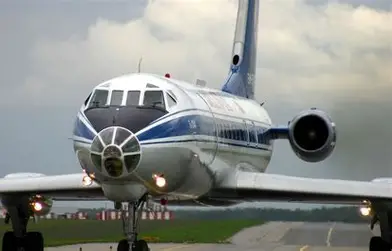NATO Intercepts Russian Warplanes Violating Estonian Airspace
By Isha - Sep 19, 2025
NATO fighter jets intercepted Russian MiG-31 warplanes violating Estonian airspace, sparking concerns about regional stability and highlighting tensions between Russia and NATO. The incident is seen as a deliberate provocation that could influence military strategies and diplomatic relations in Eastern Europe.

Image by Dmitry Petrochenko, Reuters via CNN
NATO fighter jets were scrambled after three ,[object Object], reportedly violated Estonian airspace, lingering for approximately 12 minutes before being escorted out. Estonian defense authorities confirmed the breach, describing it as a serious infringement of national sovereignty and a direct challenge to NATO’s security framework. The incident has reignited concerns about regional stability, particularly in the Baltic states, which share borders with Russia and have long expressed unease over Moscow’s military maneuvers.
The Estonian government issued a strong statement condemning the intrusion, framing it as a clear provocation and part of a pattern of aggressive actions by Russia in recent years. Since the onset of the Russia–Ukraine conflict, NATO members on the alliance’s eastern flank have faced repeated incursions, including near airspace violations and maritime confrontations. These incidents highlight the fragile security environment in Eastern Europe and underscore the risks of miscalculation in a highly militarized region.
Military analysts suggest the airspace breach may be an attempt by Moscow to test NATO’s readiness and political will. While such violations are often used as signals rather than preludes to direct conflict, they raise questions about escalation and deterrence. The fact that the warplanes remained in Estonian airspace for an extended period suggests a deliberate move rather than a navigational error, further heightening tensions. NATO officials have reiterated their commitment to defending every inch of allied territory, emphasizing that any hostile action against one member will be treated as an attack on the alliance as a whole.
Beyond regional security, the incident carries broader geopolitical implications. It may trigger calls for an expanded NATO air patrol presence in the Baltic region, increased military spending among member states, and renewed debates over deterrence strategies. Diplomatically, the violation is likely to exacerbate already strained relations between Russia and the West, complicating any efforts at dialogue or de-escalation. As NATO balances deterrence with the need to avoid unnecessary escalation, the event serves as a stark reminder of the fragile line separating routine military encounters from potential international crises.


